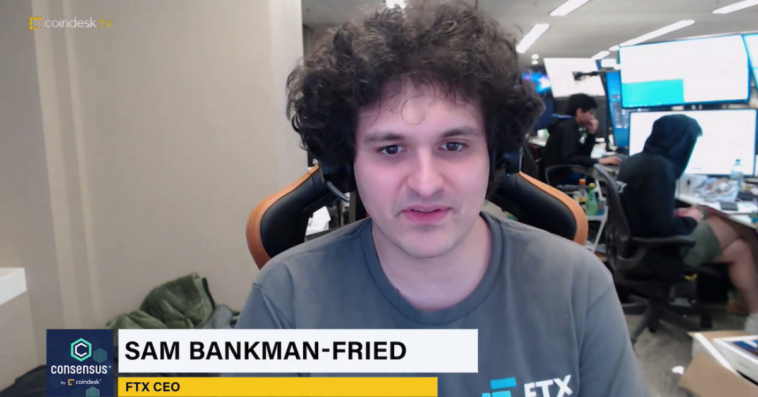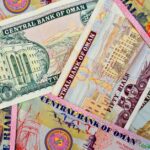5 Big Takeaways From Day 2 at Consensus
We heard from China experts, bitcoin miners and some of the biggest names in non-fungible tokens during the second day of Consensus 2021. Here are five of the biggest takeaways.
1. Crypto could be a modernizing force for regulation: SEC
Crypto may force the Securities and Exchange Commission to modernize its custody rules faster than it would otherwise, Commissioner Hester Peirce said at Consensus 2021. “The bottom line message I have is that we have work to do in modernizing our custody rules, all across the board,” she said. “I think, as with many other areas, crypto may force us to do that modernization faster than we otherwise would do.”
2. Making sense of the ‘mining ban’
China’s highest economic planning agency has issued draft guidance on how to ban crypto mining in the autonomous region of Inner Mongolia. The guideline includes specifics on monitoring and punishing companies and individuals involved in crypto mining (including internet cafes!). Several Consensus panels discussed how this policy is different from a similar 2019 ban – with most in agreement that the new law, if it goes into effect, would affect a wider range of businesses. Ballet founder Bobby Lee, for one, raised the prospect that Mongolia may choose not to enforce the ban.
3. BTC, ESG, OPEC: SBF
Yesterday evening two bitcoin figureheads, Elon Musk and MicroStrategy CEO Michael Saylor, joined forces on the Bitcoin Mining Council, an apparent attempt to address bitcoin’s worrisome environmental footprint. The council has been derided by some as a shadowy cabal that could damage bitcoin’s fungibility or decentralization. FTX CEO Sam Bankman-Fried said today that an “OPEC-like” strategy wouldn’t work because “anyone can come in and mine bitcoin.” It’s unknown how the council will address the hashrate problem besides advocating for greater transparency of where miners source their energy and encouraging the uptake of renewables. For his part, Bankman-Fried has pledged to start buying carbon offsets.
4. A peek at what state-backed interoperability looks like
Yifan He, the CEO of Red Date Technologies, one of the technological backers of the Blockchain-Based Service Network (BSN), gave a first peek under the hood of the so-called blockchain of blockchains. Although still at a “very early stage,” the state-backed BSN will integrate with AWS, Google Cloud, China Mobile and AliCloud to provide cloud services, and have a “Public City Node” layer to provide public and private blockchain services. The most significant technological advancement? BSN has “unified API gateways” to help developers connect to all the various supported chains with just a single set of credentials.
5. Meet the NFT maximalists
Innovation is still happening in the NFT space at a breakneck pace, despite a recent pullback in hype and prices. Brian Transeau, the electronic musician known simply as BT, has unveiled one of the most innovative token projects to date. Called Genesis.json, the NFT/dapp is a 24-hour audiovisual event featuring about 15,000 bits of music and imagery all hand-sequenced and hard-coded by BT. Noah Davis, Christie’s point person on NFTs, called the token standard “the art world’s Napster” that could disrupt the auction system forever. He added that the auction house is planning to continue offering NFT “drops,” with recent auctions involving blue-chip items such as Andy Warhol NFTs and more experimental rollouts.
Day 1 Takeaways
The first day at Consensus 2021 was packed with news and insight, from Ray Dalio speaking freely on the coming debt crisis to a Federal Reserve governor indicating that the central bank “wants a seat at the table” in the development of cross-border solutions. Here are the five need-to-know takeaways from Monday’s events.
This article is excerpted from The Node, sending twice daily this week to cover the biggest news from our virtual Consensus conference. Subscribe to receive the full newsletter here. And register for Consensus here.
1. Competition is driving CBDC research
Federal Reserve Governor Lael Brainard didn’t exactly give a forward projection for the U.S. agency’s policy this morning, but she did say the Fed is more interested in central bank digital currencies (CBDC) than previously known. Brainard said it’s important to follow the rise of private money and CBDC pilots in antagonistic nations like China closely. “The issuance of a CBDC in one jurisdiction … does potentially have significant effects across the globe,” she said. To that end, the Boston Federal Reserve and MIT Digital Currency Initiative plan to publish a U.S. digital dollar white paper this summer.
2. Inflation will wane over time: Federal Reserve
Asked about inflation, Brainard cited April’s Consumer Price Index (CPI) report, showing a 4.2% increase in prices year-over-year. This is a worrying figure in-and-out of the cryptocurrency industry because it shows a real impact on everyday shoppers. Brainard poured cool water on the heated talking point when saying a rise in inflation was to be expected as the U.S. economy continues to reopen. This is a continuation of what Fed Chair Jerome Powell has been saying for months, including that the central bank will let the economy run hot. Brainard added these inflationary forces will “subside over time.”
3. Dalio prefers BTC to bonds
Ray Dalio, the founder of the world’s largest hedge fund, predicts that the U.S. dollar is on the verge of devaluation and could lose its position as the global reserve currency. Fearing rising inflation and the preponderance of debt in the economy, Dalio expects the Federal Reserve to resort to the new usual: more money printing to pay down debts. Under this inflationary scenario, the Bridgewater founder said he’d “rather have bitcoin than a bond,” if looking for an attractive hedge. What’s more, Dalio said for the first time he’s already a holder. Dalio also said that “bitcoin’s greatest risk is its success.” Though it may be bitcoin’s time to shine (over gold) during a coming inflation rout, if it cuts into the government’s ability to raise funds through bonds, a swift ban might be expected.
4. Dalio isn’t the only hodler
Wyoming Governor Mark Gordon revealed he owns cryptocurrencies while discussing the early successes of his state’s efforts to attract cryptocurrency companies and projects. “People often look to New York or Miami or Delaware before they look at Wyoming. But a lot of the pioneering work has been done here,” Gordon said. Indeed, Wyoming has set out some of the nation’s most favorable crypto laws, most recently a bill that would recognize decentralized autonomous organizations (DAOs, or, bits of code) as legal entities. Does it pay to be early? Gordon listed off some of the big names that opened branches in the Cowboy State: Kraken, Ripple Labs and IOHK, the company behind Cardano. A $60 billion broadband expansion program also didn’t hurt in attracting these digital natives.
5. Holding bitcoin is a ‘fiduciary’ duty
Inflation was one of the common themes throughout the day’s panels. Nowhere was that more on display than during a roundtable featuring MicroStrategy CFO Phong Le, whose company has become synonymous with the buy and hold mentality. Since August, MicroStrategy has purchased $2.3 billion worth of BTC, in an attempt to get cash – a depreciating asset – off its balance sheets. Today, Le gave a little more insight. “I’m not saying you should put all of your corporate treasury in bitcoin,” he said. “But if you’re not putting any of it into bitcoin, I don’t think you’re doing your fiduciary responsibility, which is maximizing shareholder value.”
UPDATE (25 May 22:45 UTC): Adds new information. Check back for updates throughout Consensus.
https://www.coindesk.com/5-big-takeaways-from-day-1-at-consensus






 BTC-USD
BTC-USD  ETH-USD
ETH-USD  LTC-USD
LTC-USD  XRP-USD
XRP-USD